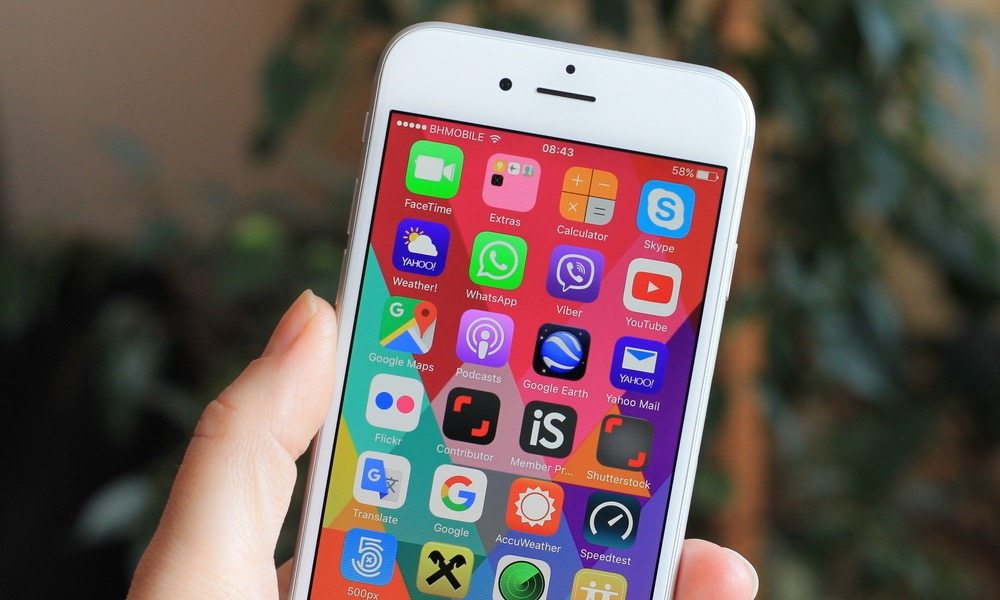How Apple Plans to Strengthen iCloud Encryption After Troubling Events

Toggle Dark Mode
Apple is locked in an intense battle with the FBI over iPhone encryption and security, with the FBI wanting Apple to create a back door in the iPhone enabling it and other law enforcement agencies to access information it wants to access, and Apple putting out privacy before anything else.
According to recent reports, however, Apple isn’t even really thinking about what the FBI wants. Instead, it’s thinking about how to improve its encryption without it being an inconvenience to users.
At this point in time, Apple stores some encrypted information on iCloud by using a key that unlocks the information. The key serves as a way for users to restore the information about their account, but it can also be used to unlock information to hand over to law enforcement agencies who have a proper and legal request.
Apple, however, is concerned with the fact that if it has a key to the information, then it could eventually be compromise by hackers or even governments who want to illegally access the information. If even Apple doesn’t have a key to that information, then it couldn’t hand over the keys even if there was a legal request, and if a key didn’t exist in the first place, there wouldn’t be a way for hackers to get into the information by hacking into Apple.
One of the central components of the argument over data encryption is iMessage. iMessage uses something called end-to-end encryption, basically eliminating the opportunity for law enforcement agencies to intercept those messages. Of course, law enforcement agencies suggest that this kind of encryption is dangerous, and can make it easier for criminals to communicate with each other without fear of being caught.
Of course, while that may be true, that’s really missing the point. The point is not that Apple is protecting terrorists, but rather than the company is protecting law-abiding citizens from being hacked, a serious issue considering the revelations released by former NSA contractor Edward Snowden. In 2012 Snowden released hundreds of documents related to NSA practices, revealing that the agency was using spying techniques that were so wide-spread that millions of law-abiding citizens were being affected by it too. Apple supporters (and many in the general public, Apple or Android) think that Apple is working to protect individual rights.
 Image credit: Mike Deerkoski | Flickr
Image credit: Mike Deerkoski | Flickr
When it comes to iCloud, of course, things are a little different. There are encryption safeguards in place for iCloud, however content stored on the platform is far more accessible than content stored on an iPhone. In fact, all the content stored on iCloud can be accessed by Apple, making it far less secure than data stored on the iPhone, which isn’t accessible by Apple. What that means is that as long as Apple is served by a valid warrant for certain data, Apple could technically access iCloud data and hand it over to law enforcement.
Apple bolstering its encryption capabilities is sure to anger law enforcement agencies. Agencies like the NSA are used to having free access to any phone whenever they want, however following the Edward Snowden revelations, companies like Apple and Google have worked hard to protect their customers from both law enforcement agencies illegally hacking them, and other hackers trying to gain access to phones.
It’s not yet known when Apple is planning on improving the security of its iCloud cloud service, however it’s likely that the company is working on it and we will see the results over the next two years or so.
It’s important to note that Apple has been rumored to be working on the security of iCloud since before its legal battle with the FBI began. After the iCloud hack involving high-profile celebrities like Jennifer Lawrence and Kate Upton, Apple resolved to improve the security of iCloud, even though it has now been revealed that the hackers behind the hack simply used a phishing scam, involving sending emails to the victims posing as Apple and asking for usernames and passwords.
It will certainly be interesting to see what kinds of changes Apple makes to iCloud in order to protect customer privacy, and while the general public may not appreciate the changes, the tech geeks among us will most certainly appreciate the fact that Apple is trying to protect our privacy.
Learn More: Use These 5 Simple iPhone Tricks to Save Precious Time







